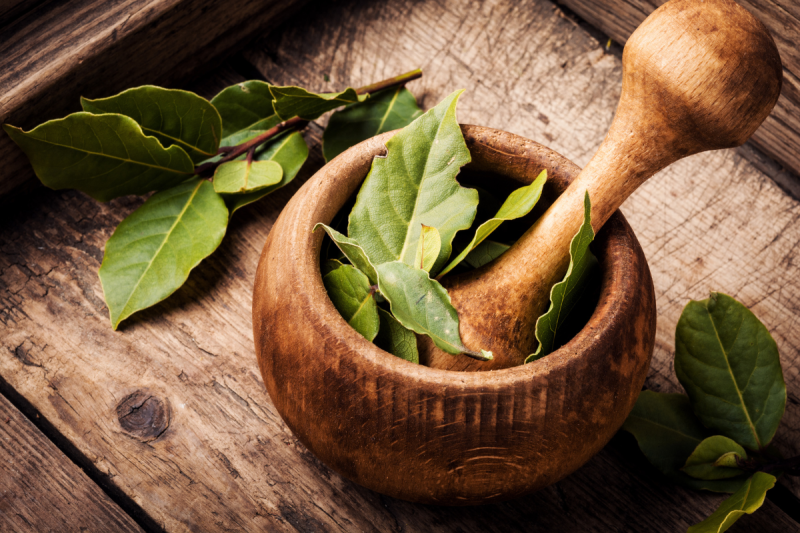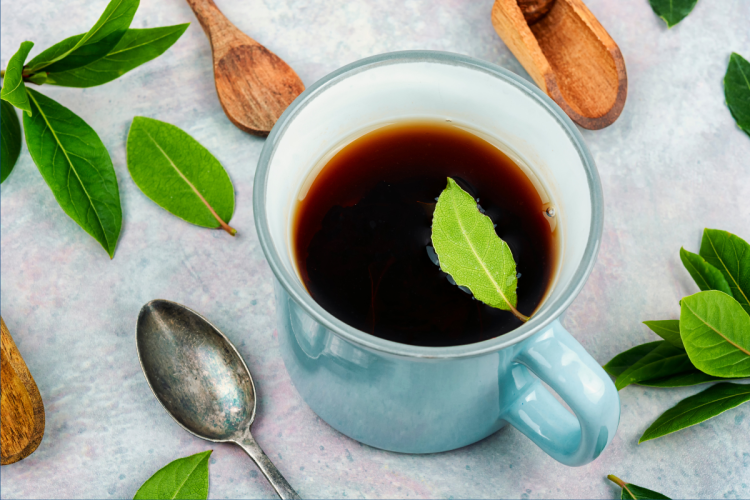In our house, soup is comfort food and whenever you need comfort, then it is time to put on a pot.
So, cooking chicken soup on a rainy Sunday afternoon is a no-brainer. On this occasion, I decided to add a bay leaf to the pot. I can’t say there was any noticeable difference in the flavour. The soup was delicious, and everyone enjoyed it. However, before long everyone was fast asleep, and it was hours before we woke up.
By process of elimination, my children and I figured out that the bay leaf was the cause for our fitful sleep. But why?
Of course, researching bay leaf led to discovering other natural sedatives used traditionally to encourage restful nights and are in your garden or growing on a fence nearby.
Bay Leaf: A Surprising Sedative
In Caribbean kitchens, bay leaves are a staple for their aromatic flavor. However, beyond seasoning, bay leaves are cherished for their calming effects. Containing compounds that soothe the mind, a tea made from bay leaves or simply inhaling their scent can ease you into a state conducive to sleep, making them an unexpected but welcome aid for those restless nights.

Cerasee (Bitter Melon)
Cerasee, or bitter melon, is widespread in Montserrat and renowned for its myriad health benefits, including its potential to improve sleep. This bitter vine, often brewed into tea, is believed to have calming properties that can help mitigate sleep disorders. Its natural components may work together to relax the nerves, offering a gentler transition to sleep.
Lemongrass
Lemongrass, with its citrusy aroma, is more than just a culinary herb — it’s also a popular remedy for insomnia and anxiety. Brewing a cup of lemongrass tea in the evening can act as a soothing balm for the nervous system, setting the stage for a restful night.
Verbena
Verbena, or vervain, is another herb found throughout the Caribbean known for its sedative effects. Traditionally used to treat anxiety and insomnia, verbena can help quiet the mind and ease the body into sleep. Its mild sedative properties make it an excellent choice for a pre-bedtime tea.
Anise
Anise, with its distinct licorice flavor, is often used in Caribbean desserts and beverages, but it also has a place in the natural sleep aid repertoire of many island homes. Anise tea can help relax the digestive system and the mind, addressing two common obstacles to a good night’s sleep.
Tips for Using Caribbean Natural Sleep Aids
– Always choose fresh or properly dried herbs to ensure you’re getting the full benefits of their natural properties. (According to the elders, always use an odd number of leaves when making tea.)
– Consult with a healthcare professional, especially if you have existing health conditions or are taking medications, to avoid any potential interactions.
– Incorporate these herbs into a relaxing bedtime routine that allows you to unwind and signals to your body that it’s time to sleep.
Embracing Local Wisdom for Restful Nights
Montserrat’s environment offers a natural pharmacy of herbs and plants that can support better sleep and overall well-being. By tapping into the traditional uses of plants like bay leaf, cerasee, lemongrass, verbena, and anise, you can harness the power of nature to improve your sleep. Incorporating these natural remedies into your nighttime routine can be a delightful and effective way to embrace the wisdom of the islands, leading to peaceful nights and rejuvenated days. Remember, the best sleep solutions are sometimes the most natural and time-honored ones, gifted to us by the rich biodiversity of the Caribbean.
Discover more from Discover Montserrat
Subscribe to get the latest posts sent to your email.





